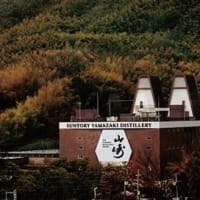Japan’s shift can be seen in an increasingly muscular role for the nation’s Self-Defense Forces (SDF), in a push among mainstream politicians to revise key portions of the pacifist constitution and in a new willingness to clash with China, particularly in the East China Sea, where U.S. Defense Secretary Leon E. Panetta said this week he was “concerned about conflict.”
But analysts stress that Japan, even with its rightward shift, still remains ambivalent about its military; Japan is merely moving toward the center, they say, after decades of being perhaps the world’s most pacifist advanced nation.
“The post-World War II Japan policy was to be low-key and cooperation-oriented,” said Narushige Michishita, a self-described moderate and a security expert at the National Graduate Institute for Policy Studies in Tokyo. “We tried to avoid any confrontation or friction with surrounding countries. . . . But there’s a widespread feeling in the minds of Japanese people that being nice didn’t work out.”
Polls suggest Japanese are increasingly concerned about security and feel their country faces an outside threat. According to government data collected earlier this year, 25 percent think Japan should increase its military strength, compared with 14 percent three years ago and 8 percent in 1991.
右傾化する日本の姿は、日本の自衛隊の果たす役割が年々軍事的により強力かつ実体的なものになってきていることに露わである。而して、自衛隊の役割の変化は、日本の非戦主義の憲法の枢要な条項の改正を日本政界の主流に属する政治家が推し進めようとしていることと轍を一にしており、加之、「喧嘩上等」の意識、すなわち、支那との衝突をむしろ歓迎する、就中、東シナ海での支那との衝突はむしろ望むところだという意識の広がりとも自衛隊の役割の変化は連動していよう。ちなみに、その東シナ海についてアメリカのPanetta国防長官は今週【2012年9月18日-19日】アメリカもその地域における「日本と支那との紛争には懸念と関心」を抱いていると述べている(★)。
専門家筋によれば、日本の右傾化について重要なことは、しかし、右傾化という現実は否定できないにしても、もうすでに日本が武力の行使も躊躇しないような国になったわけではないということ。畢竟、この何十年かの間、世界の先進国の中でもおそらく最も非戦主義的だった日本は、武力を外交の手段として使用する頻度と度合いに関して、現在、世界の先進国の標準的な立ち位置に向かって移行しつつあるに過ぎないということらしい。
「第二次世界大戦終結以降、日本の外交政策の指針は控え目なものであり日本は専ら他国との協調を旨としてきた」。自らを政治的には中道に位置する安全保障の専門家と自己規定する、政策研究大学院大学の道下徳成氏はそう語る。「日本は近隣諸国との対立や摩擦を避けることに専念してきた・・・。しかし、現在、日本国民の間には、「他国に対して日本はずうっーと優しく親切にしてきたよね。でもね、結局、その結果は日本にとって好ましいものじゃなかったよね」という思いが広がっている」とも。
世論調査の結果も、安全保障に対する危惧/日本は他国の脅威にさらされていると日本人が感じるようになってきていることを示唆している。すなわち、今年の年初に行われた日本政府の統計資料によれば、25%の日本国民が軍備増強を要求しているのだけれど、この数字は3年前は14%であり、1991年には8%に過ぎなかったのだから。
★補註:Panetta発言-NHK・2012年9月21日
アメリカのパネッタ国防長官は、19日、訪問先の中国で習近平国家副主席と会談した際、尖閣諸島を巡る日中の対立について、「両国の話し合いによる平和的な解決を望む」としたうえで、尖閣諸島は日米安保条約の適用範囲内だと直接説明したということです。そして、「アメリカは安全保障条約の責任がある」として、仮に軍事的な衝突に発展すれば、アメリカも関与せざるをえないという認識を伝えたということです。パネッタ長官は、中国の梁光烈国防相らにもこうした考えを伝えたとのことです。

That shift in thinking is reflected in Japan’s leaders, including hawkish Prime Minister Yoshihiko Noda, son of an SDF member, who has restored the U.S.-Japan security alliance as the “foundation” of Tokyo’s foreign policy. That’s a stark shift from three years ago, when then-leader Yukio Hatoyama frayed ties with Washington and dreamed of a harmonious “East Asian community” that included China.
But Noda, unpopular and likely facing an election in the upcoming months, is a relative moderate compared with those lining up to take his place. Front-runner Shigeru Ishiba, of the Liberal Democratic Party, said in a recent interview with the Wall Street Journal that the SDF should be able to fire warning shots against maritime intruders; currently, the SDF yields to the Coast Guard to handle incursions. Another top candidate, Nobuteru Ishihara, son of China-baiting Tokyo Gov. Shintaro Ishihara, said recently that part of the country “will be snatched” if Japan is off guard.
Some of the get-tough-on-China talk, surging this summer amid a recent territorial dispute, merely caters to Japan’s small and vocal group of nationalists. But such security issues have also “become more important to common people as well,” said Yuichi Hosoya, a professor of international politics at Keio University, and no politician can ignore that.
No matter who follows Noda as prime minister, Hosoya said, Japan will move further to the right.
日本国民のこのような意識の変化は日本の政治指導者にも反映している。自衛官の子息である鷹派の野田佳彦首相がその反映の証左の一例。野田氏は、日米軍事同盟が日本外交の<基盤>であることを再確認すべく汗をかいているところなのだから。而して、野田氏のこの取り組みは、3年前に【史上最悪の首相と呼んでも断じて言い過ぎではない、】この国の当時の指導者・鳩山由起夫氏が日米関係をズタズタにしながらも、支那をも包摂する耳障りの良い所謂「東アジア共同体」なるものを夢想していた頃に比べればそれは赤裸々な方針転換と言えるだろう。
野田氏は、低迷する支持率に喘ぎながら近いうちに総選挙の試練に直面することになる。けれど、その野田氏でさえ彼から首相の座を引き継ぐべく控えている他の面々に比べればまだ穏健派の部類なのだ。実際、次期宰相の最右翼候補とされている、自民党の石破茂氏は、ウォールストリートジャーナルとの最近のインタビューで、領海侵犯【≒intrusion into territorial waters】を犯す艦船に対して自衛隊は威嚇射撃が許されなければならない、というのも、現在のところ領海侵犯に対する処置は自衛隊ではなく海上保安庁の任務とされているのだからと述べている。また、もう一人の次期宰相候補と目されている石原伸晃氏、すなわち、歯に衣を着せぬ本物の支那嫌いで知られている石原慎太郎東京都知事の子息である石原氏もまた、最近、日本が隙を見せようものなら日本のいずれかの領土を「躊躇なく奪おう」と虎視眈々の外国は間違いなく存在すると語っているのだから。
領土を巡る紛争がここのところヒートアップする中、この夏、支那への厳しい対応を要求する言論が盛んに発せられた。けれども、それらは五月蠅く騒々しくはあるが日本国内でも取るに足らない極少数派の民族主義グループの発言に過ぎない。一応はそう言えるだろう。けれども、国の安全保障に関する問題は「一般の国民大衆にとっても以前に比べてより重要な事柄」と捉えられるようになっきている。そして、安全保障の問題を無視できる政治家などどこにもいるはずもない。そう、慶応大学の国際政治学の教授、細谷雄一氏は述べる。
その細谷氏によれば、いずれにせよ、誰が野田氏の次に宰相の印綬を帯びようとも日本が更に右傾化することはまず間違いないとのことである。

<続く>



















